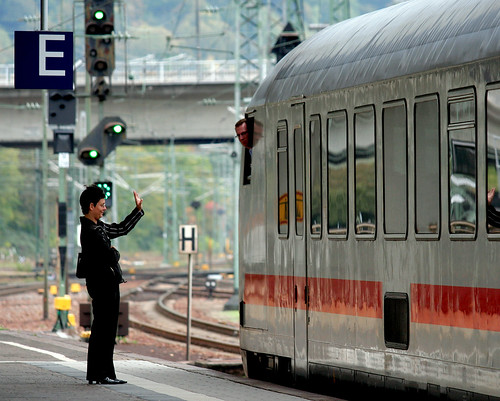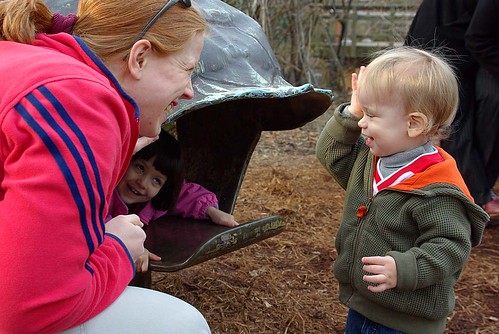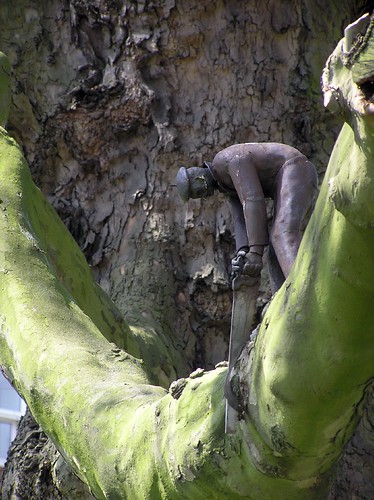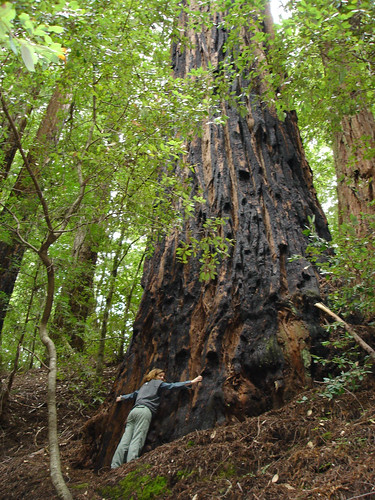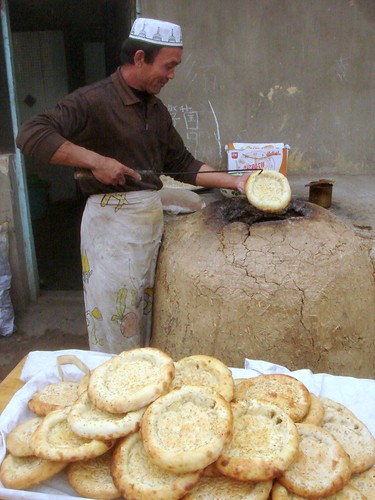
Wednesday in the 6th Week of Easter
Designers or Tailors
Readings: Acts 17:15, 22-18:1; Psalm 148:1-2, 11-12, 13, 14; John 16:12-15
Pictures: CC Lawrence Sinclair
I know next to nothing about the fashion industry. But an occasional cursory glance at such programs as Project Runway and America’s Next Top Model sometimes leads me to wonder at the exact aim of those who operate in the rarefied atmosphere of high fashion. To my uninitiated eyes, it often seems that instead of trying to make clothes that fit people – real people – the goal is instead to choose the right people – the right models, the right buyers – to fit the clothes. How different is this scene from the far more down-to-earth one found in the humble tailor shop (if we still remember what that looks like), where much energy is spent on taking the right measurements to ensure a comfortable fit. Such seems to be the contrast between designers and tailors. The former moulds models to match the material, while the latter cuts the cloth to fit the customer.
This contrast is a useful one to keep in mind when reflecting on our relationship with God. For the approach of the fashion designer is precisely the one that Paul is speaking against in his address to the Athenians in the first reading. Rather than humbly receiving the divine revelation as to what God is like and how God acts, people with the designer mentality seek instead to mould God according to their own whims and fancies. As a result, however faithful they may seem to be in performing routine rituals of worship, they end up merely paying homage to false gods, products of their own design, idols of their own making. The One True God remains unknown to them. Which is a very serious situation, since eternal life consists in knowing the one true God and Jesus Christ whom God has sent (see John 17:3).
It is this serious situation that the Holy Spirit and Paul are sent to redress. As Jesus tells us in the gospel, the Spirit of truth… will guide you to all truth. And it is this truth about God that Paul proclaims in the first reading. In contrast to the designer mentality, Paul demonstrates a tailor’s sensitivity. Even when speaking about the One True God, Paul tries to measure and fit his words to his listeners. He makes reference to their prevailing practices of devotion. He praises them for being very religious. He argues reasonably, as one of their philosophers might. He couches his message in terms that they can understand. In particular, he emphasizes the otherness of God (the Lord… does not dwell in sanctuaries made by human hands, nor is he served by human hands…), as much as God's nearness to us (in him we live and move and have our being). He also stresses God’s desire to be found by his wayward children (for we too are his offspring).
But however much Paul tries to tailor his message to his audience, there is one crucial non-negotiable aspect that he cannot, and dare not, water down. For this is the crux of the matter. This is the central aspect of the Mystery: God has given all authority to Jesus the Christ, who died and was raised to life for us. And this is something that the designers cannot accept. They are unwilling to tailor their own viewpoints – they are unwilling to cut the cloth of their own lives – to fit the contours of this mind blowing Mystery.
And doesn’t Paul’s experience at Athens present us with a mirror? Doesn’t it invite us to reflect upon our own worship and our own lives? In our relationships with God and with one another, to what extent are we willing to acknowledge the truth of what is before us? Or to what extent do we seek to mould God and others into our own image and likeness? The former is the way to truth and the fullness of life. The latter leads to the relegation of the One True God to the status of an unknown god.
How are we being challenged to forsake the designer in favor of the humble tailor today?
